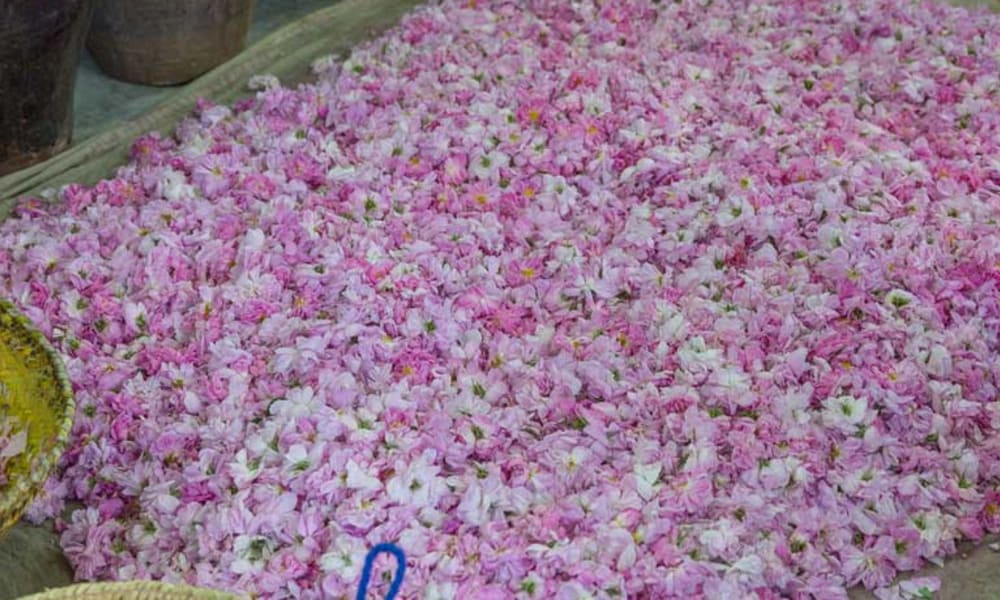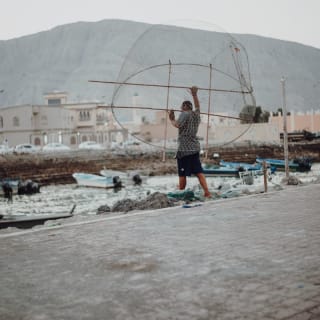
Traditional production of rose water
Traditional production of rose water
Every year between the end of March and the beginning of May, the rose gardens of the Jebel Akhbar come to life. Each morning, the rose farmers go to their fields and pick the rose flowers. These are collected in large baskets and then taken to the distillery, where rose water is made from the blossoms. The harvest season is short and great effort is made to get the best harvest possible in the brief time available. But the rather high prices farmers can charge in the markets for their rosewater more than makes up for the short season. The premium price that rose water can attain anywhere in the country at the smaller and larger Souqs is primarily due to the limited availability of the product. The processing of rose water is done as it was centuries ago and still handled primarily in distilleries in the Lower Sayq Plateau.
The traditional craft of the rose water distillery still lives on today
The distillation of rose water is traditionally a craft done by men in the country. The rose petals are splashed with fresh spring water and then placed in a large clay pot, the Burmah. The pots are placed in a clay oven, the Dahjan, which is only used for the distillation of rose water. In this oven, the petals are slowly and carefully heated to around 100 degrees Celsius. Up to four Burmah can be heated simultaneously in a Dahjan. Nestled inside the Burmah is a somewhat narrower clay pot, the Sahlah. The entire contraption is sealed with a bulbous copper kettle, the Qars, which is filled with cold water at the top. As the rose petals are lightly squeezed between the Burmah and the Sahlah, the sap of the roses evaporates with the heat and rises, until it condenses on the cold copper of the Qar. It then runs along the bulbous curve of the Qar down to the middle and then drips into the Sahlah. During the distillation process, the Sahlah is stained again and again by pouring the rose water collecting there into a storage vessel through a filter which consists of a very fine cotton cloth. The liquid rose product stays still for a few days so that it can develop its full aroma and then the final product, rose water, is bottled into small bottles to be sold in markets across the country.
The many uses of Rose water
In addition to being a wonderful fragrance, rose water can also be used as a delicious seasoning for food. In Oman, desserts, in particular, are made with a bit of rose water. Good quality rose water is golden yellow in color with a slightly smoky fragrance and effervescent, with many small air bubbles appearing when the vial is shaken. The dried rose leaves are not thrown away by the farmers but used as fertilizer in the fields to ensure another plentiful harvest in the following year.
Discover Oman with experts who have called it their home
Your dream holiday, tailor-made by experts.
We don't just know Oman from books, we visit the country several times a year to experience the culture, landscape and people first-hand.
From your first enquiry to your return home, we are there for you personally - by phone, email or WhatsApp, whenever you need us. Our trips are as unique as you are: individually planned and provided with exclusive privileges and high-quality arrangements that will make your trip unforgettable.
Experts for your Oman trip







